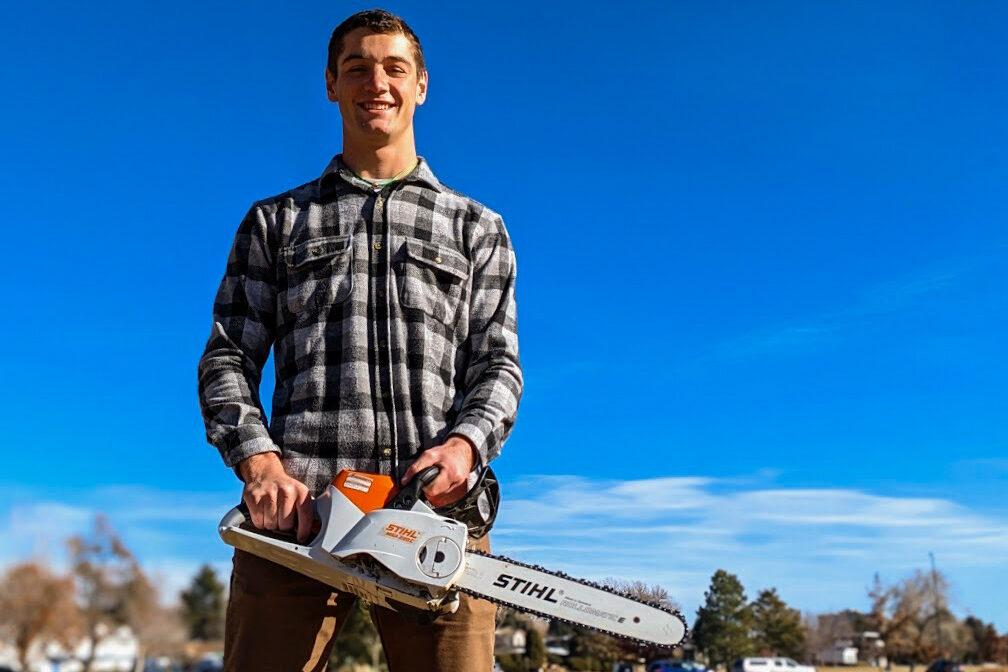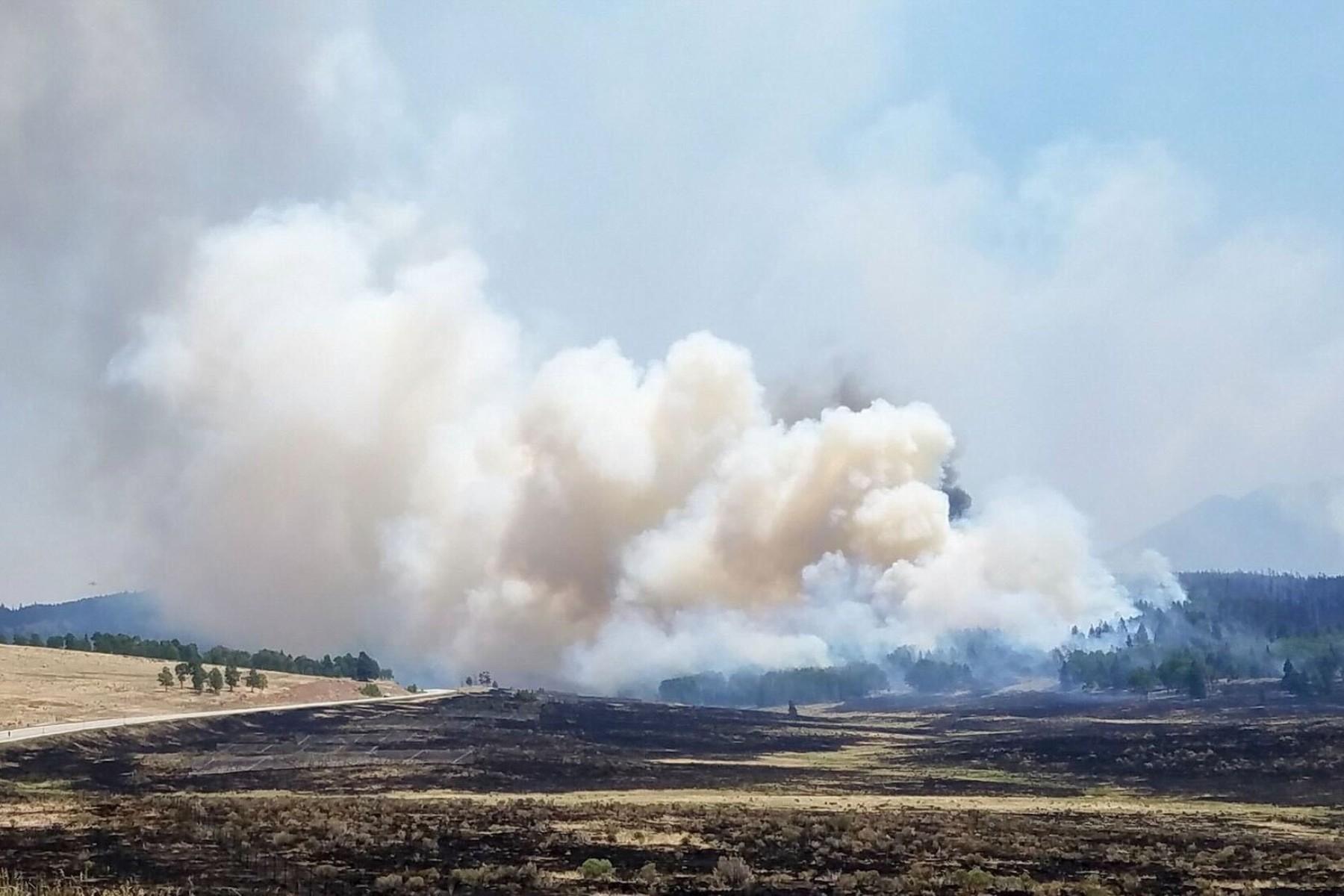
The way Jordan Champalou looks at his all-electric chainsaw might inspire a twang of jealousy.
The 21-year-old founded Electric Lawn Care in Westminster in June to offer customers a greener, quieter landscaping option. The Stihl saw is now his favorite tool in an arsenal of battery-powered lawn equipment, which he charges from solar panels taped atop a black pickup truck. He loves how quickly and quietly it can slice through a tree branch.
"I have clients with newborn babies that don’t wake up when I’m working on their property," he said.
Champalou isn't the only champion for electric lawn equipment.
On Thursday, he joined the Colorado Public Interest Research Group Foundation, an environmental and consumer protection nonprofit, as it released a report calling on state air regulators to phase out gasoline- and diesel-powered leaf blowers, lawnmowers and other garden equipment.
That demand comes amid ongoing air quality struggles along the Front Range. Earlier this year, the U.S. Environmental Protection Agency reclassified the region as a "severe" ozone violator, noting it had failed to meet federal health standards for the well-studied lung irritant for more than a decade.
State air regulators are set to vote on a new plan to reduce ozone levels later this month. The proposal has disappointed environmental advocates, including Kirsten Schatz, the clean air advocate for the CoPIRG Foundation.
At the press conference in Denver's Sloan's Lake Park, she noted the plan lacked any new regulations on gas-powered lawn equipment. Schatz said the omission is unforgivable given the massive air pollution impact of the small machines.
Unlike cars or trucks, a standard leaf blower relies on a two-stroke engine that burns oil and gasoline in a single combustion chamber. The result is a large release of nitrogen dioxide and hydrocarbons. On hot summer days, ozone forms in the atmosphere as the compounds react amid heat and sunlight.
Those technical details mean lawn equipment is a surprisingly large source of Colorado's air pollution. Operating a commercial leaf blower for more than an hour produces as much smog-producing pollution as driving a new car from Los Angeles to Denver, according to the California Air Resources Board.
More local estimates come from the Regional Air Quality Council, the lead air quality planning agency for the Front Range. Its latest models show lawn and garden equipment is responsible for 2.5 parts per billion of the region's average summertime ozone concentrations. That's a third of the contribution of all on-road vehicles.
Schatz said the Colorado Air Quality Control Commission has a range of options to rewrite its ozone plan to address the problem. One is adopting regulations California approved last year, which will ban the sale of gas-powered lawn equipment starting in 2024.
A less aggressive alternative could be to add new funding to the regional council’s Mow Down Pollution Program, which subsides the purchase of electric lawn equipment along the Front Range, according to the report.
But with less than two weeks until the Dec. 13 hearing on the ozone plan, Schatz acknowledged both options are unlikely in the short term.
She sees more promise in the legislature, where lawmakers have already considered a failed attempt to phase out the sale of gas-powered lawn equipment on the Front Range. Schatz is unaware if any lawmaker plans to revisit the issue in the upcoming 2023 legislative session.
The hearing later this month also won't be the last opportunity to modify the state's ozone plan. After acknowledging undercounting ozone pollution from the state’s oil and gas industry, air regulators now plan to revisit large parts of the new rules next year.
Schatz said a new approach to lawn equipment could be wrapped into those deliberations, but her top priority is getting the state to reconsider its approach sooner rather than later.
“I want to see whatever we can get into effect as quickly as possible, whether that’s through the legislature or the AQCC, " she said.









